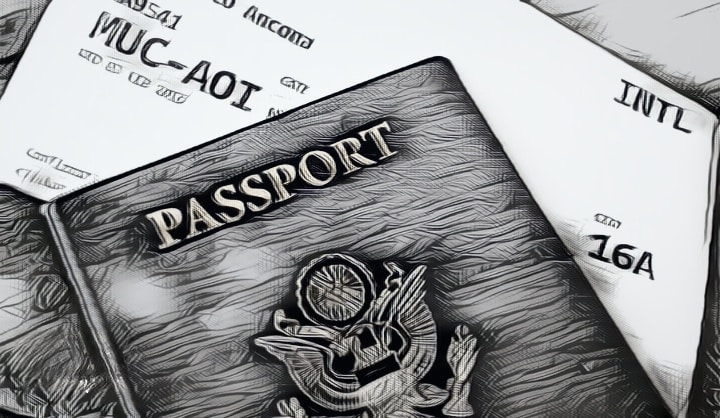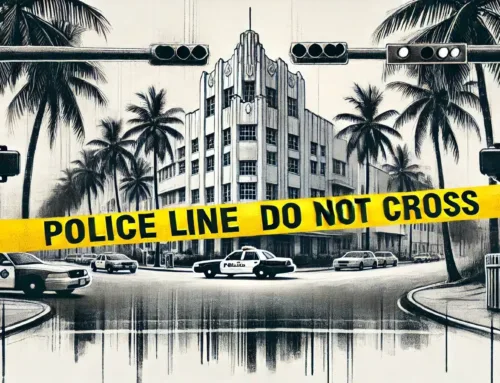When U.S. Criminal Laws Apply Overseas
As a criminal defense attorney in Miami, I often come across cases involving activities that took place outside of the United States. While criminal law is usually limited to the jurisdiction in which the alleged crime occurred, there are many circumstances in which crimes committed in other countries can be prosecuted in the United States as federal crimes.
In this post, I’ll break down when and how American criminal law may apply extraterritorially beyond the borders of the U.S. I’ll cover the key issues any criminal defendant needs to understand about extraterritorial jurisdiction, including:
- Constitutional authority for extraterritorial criminal statutes
- Rules of statutory construction used by courts
- Current extent of U.S. extraterritorial criminal jurisdiction
- Challenges in investigating and prosecuting extraterritorial crimes
- Venue, evidence rules, and other procedural issues
Whether you’re a U.S. citizen who engaged in potentially illegal activities abroad or a foreign national accused of breaking U.S. law overseas, you need to understand the complexities involved when criminal statutes cross international borders. A skilled criminal defense lawyer can analyze the facts in your case and build the strongest defenses against extraterritorial charges.
The Constitution Allows for Extraterritorial Criminal Laws
The first question in any case involving extraterritorial application of federal criminal law is whether Congress had the authority under the U.S. Constitution to pass a statute reaching beyond U.S. borders.
The Constitution does not directly address geographic limitations on federal criminal law. In fact, several Constitutional clauses imply that federal power was intended to apply outside the country in certain circumstances, like crimes committed on the high seas or offenses against the law of nations.
The courts have generally held that extraterritoriality, in itself, does not make a federal criminal statute unconstitutional. Congress has wide latitude to enact laws that govern conduct occurring in other countries.
However, all federal laws are subject to Constitutional limitations like the Due Process Clause. A law cannot be arbitrarily applied to those who had no reasonable notice that it prohibited their conduct. But as long as there is a clear intent for extraterritorial application, the law will likely pass Constitutional muster if challenged.
How Courts Interpret Whether Laws Apply Abroad
Since extraterritoriality is mainly an issue of statutory rather than Constitutional construction, courts have developed rules of interpretation to determine when federal criminal laws apply overseas:
- Presumption against extraterritoriality – If a statute is silent, courts will presume it does not apply abroad unless Congress expresses a clear intent to the contrary.
- Nature and purpose – Some older cases held that reading the law’s intent and purpose could signal extraterritorial reach. But under more recent Supreme Court rulings, this approach may no longer apply.
- Avoid conflict with international law – Courts will generally interpret statutes to avoid contradicting international law principles, absent Congress clearly indicating otherwise.
- Focus of statute – If conduct that’s the focus of the statute occurs in the U.S., some extraterritorial application may be justified under the law’s territorial scope. For example, wire fraud criminalizes fraudulent use of U.S. wires, even if part of the conduct is overseas.
- “Piggyback” statutes – These laws like conspiracy and aiding/abetting may apply extraterritorially based on connection to another underlying crime.
This nuanced statutory analysis shows why skilled criminal counsel is essential to identify any viable defenses based on extraterritoriality.
Current Extraterritorial Federal Criminal Laws
Despite the presumption against extraterritoriality, many federal criminal statutes expressly apply outside U.S. borders. Some of the main categories include:
- Crime in U.S. territorial waters or vessels
- Implementing treaties and international agreements
- Foreign commerce-related crimes with a U.S. nexus
- Extraterritorial application stated in the statute itself
- “Piggyback” statutes like conspiracy with extraterritorial predicates
Also, “universal jurisdiction” makes crimes like piracy punishable by any country capturing the offender.
The bottom line is that a wide range of federal crimes may lead to charges based on overseas conduct. Consulting an attorney to analyze the extraterritorial reach in your specific case is crucial.
Investigating and Prosecuting Extraterritorial Crimes
Assuming a federal statute applies abroad, substantial obstacles still confront extraterritorial investigations and prosecutions. These barriers fall into several main categories:
Diplomatic Challenges
Prosecuting foreign conduct requires cooperation of the country where it occurred. The U.S. has mutual legal assistance treaties facilitating joint investigations with many nations. Still, lack of cooperation may stymie or prevent U.S. prosecution.
Investigative Hurdles
Practical barriers like language differences, difficulty accessing evidence abroad, and jurisdictional limits of U.S. courts over foreign nationals may hamper investigations.
Constitutional Constraints
Searches, interrogations, and other investigative steps in other countries must comply with the 4th and 5th Amendments when U.S. authorities are significantly involved. Statements taken overseas under torture or coercion will likely be suppressed.
Procedural Complexities
Procedural laws on statute of limitations tolling, speedy trial, venue, compelled witness testimony, classified evidence, and foreign business records all pose unique challenges in extraterritorial cases.
Skilled criminal defense lawyers well-versed in extraterritorial procedures are essential to protect defendants’ rights across international borders. Viable case dismissal strategies often emerge from these complex rules.
Other Key Extraterritorial Criminal Defense Considerations
Some other notable issues arise in defending against extraterritorial charges:
- Extradition – If you’re a U.S. citizen abroad, extradition treaties may facilitate your transfer to stand trial here. But some treaties bar extradition of nationals, which may block U.S. prosecution.
- Double criminality – Some extradition treaties require misconduct to be criminal in both countries. Lack of dual criminality may prevent or delay extradition.
- Statute of limitations – Time limits to bring charges may be suspended pending foreign evidence requests. But Constitutional speedy trial rights provide important protections.
- Nationality – U.S. citizenship alone may justify applying American law abroad under the “nationality principle” of international law.
- Immigration status – Immigration violations may also stem from overseas conduct that violates U.S. law. This can impact non-citizens facing extraterritorial charges.
Why Miami Criminal Defense Experience Matters
Miami’s proximity to Latin America, the Caribbean, and other regions means our courts see more extraterritorial criminal cases than most U.S. jurisdictions. Don’t take chances with counsel lacking specific experience with the complex web of laws governing extraterritorial jurisdiction and defenses.
If you or a loved one are under investigation or charged for actions outside the U.S., contact us for aggressive representation. We have the knowledge and skills to analyze the cross-border issues in your case and develop the strongest possible defenses against extraterritorial prosecution.
CALL US for a FREE CONFIDENTIAL CONSULTATION at (305) 538-4545, or take a moment to fill out our secure intake form.* The additional information you provide will greatly assist us in responding to your inquiry.
*Due to the large number of people who contact our law office requesting our assistance, it is strongly suggested that you take the time to provide us with specific details regarding your case by filling out our confidential and secure intake form. The additional details you provide will greatly assist us in responding to your inquiry promptly and appropriately.
ALWAYS INVESTIGATE A CRIMINAL DEFENSE ATTORNEY’S QUALIFICATIONS AND EXPERIENCE BEFORE MAKING A DECISION ON HIRING A LAWYER FOR YOUR CRIMINAL CASE IN MIAMI-DADE COUNTY







